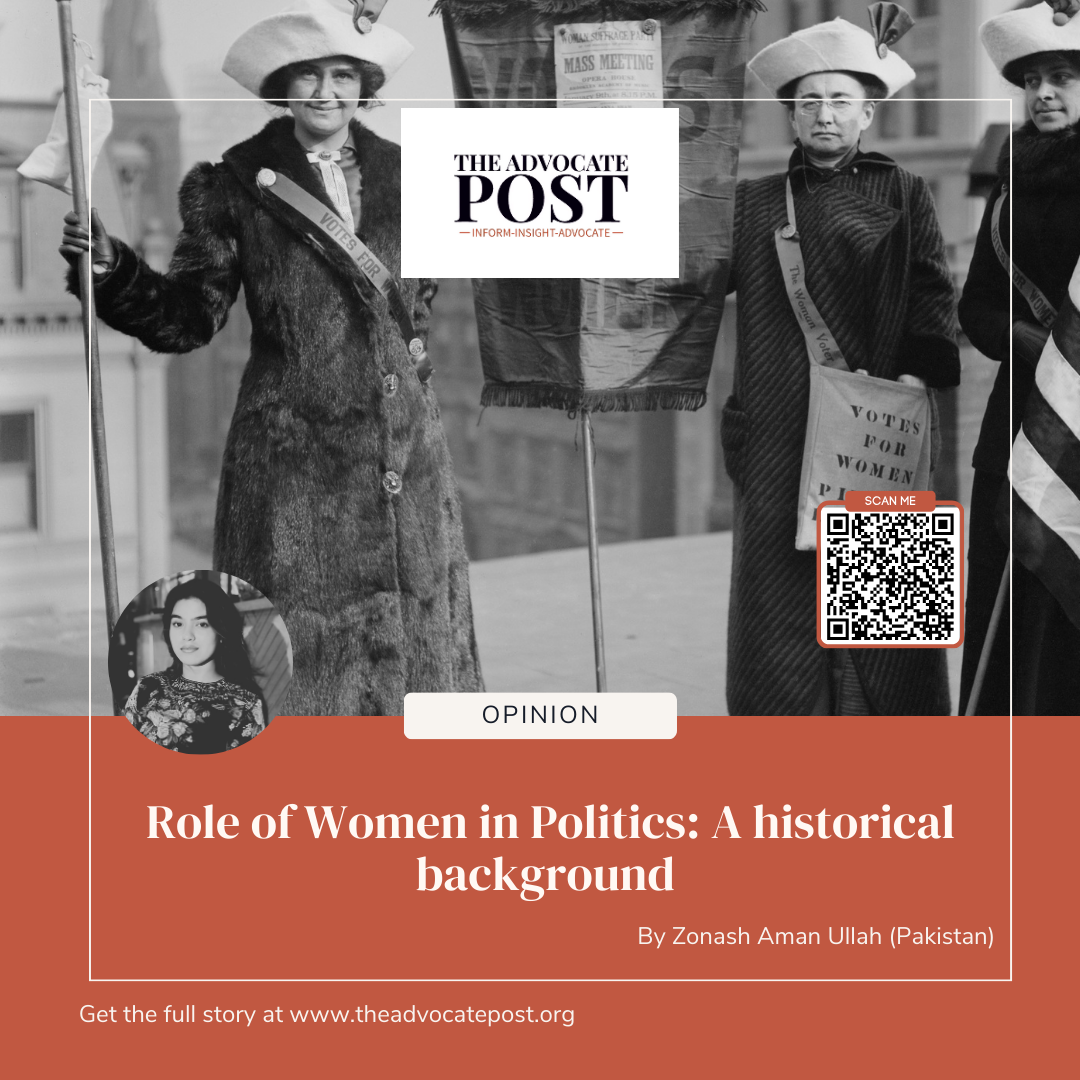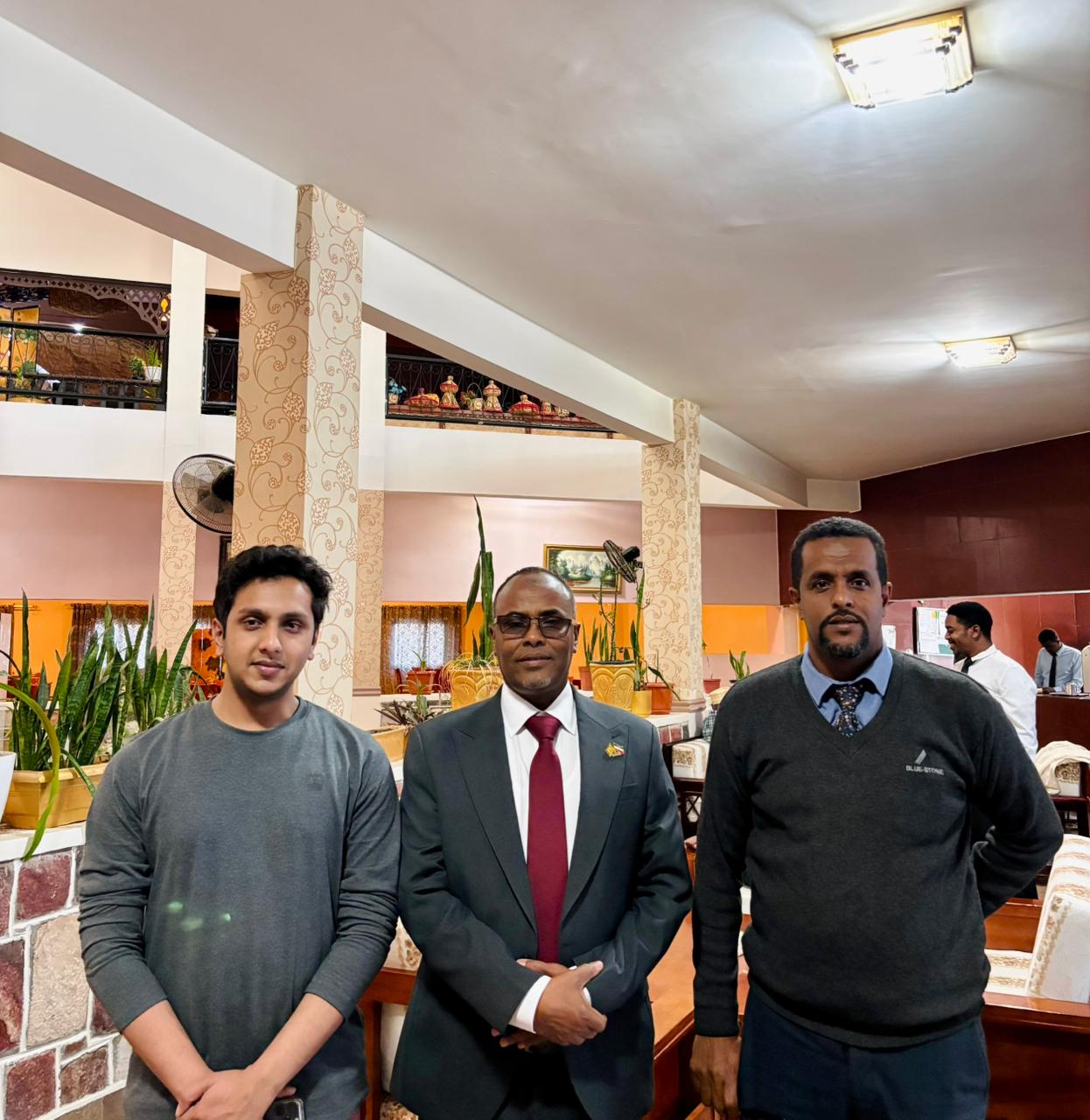By Zonash Aman Ullah (Pakistan)
The role of women in politics has evolved remarkably over the centuries. From being entirely excluded from public life to occupying some of the highest offices in the world, women’s political participation has been a long and arduous journey marked by perseverance, struggle, and triumph.
Early Exclusion
Historically, politics was a male-dominated arena. In ancient civilizations like Greece and Rome, women were not permitted to vote or hold office. Even in early democratic societies, such as early 20th century Western democracies, women’s suffrage was a contentious issue, fiercely debated and fervently resisted by the patriarchal status quo.
The Suffrage Movement
The late 19th and early 20th centuries marked significant turning points with the rise of the suffrage movement. Women in countries like the United States, the United Kingdom, and New Zealand rallied for their right to vote. Iconic figures such as Susan B. Anthony, Emmeline Pankhurst, and Kate Sheppard became synonymous with this struggle. New Zealand was the first country to grant women the right to vote in 1893, followed by others in the early 20th century. This marked the beginning of a gradual but persistent shift towards inclusive political participation.
Breaking Barriers
With the right to vote came the push for representation. The mid-20th century saw women breaking barriers in political offices. For instance, Sirimavo Bandaranaike of Sri Lanka became the world’s first female head of government in 1960. In 1966, Indira Gandhi became the Prime Minister of India, demonstrating women’s capabilities in leading large, complex nations.
The Modern Era
The latter half of the 20th century and the early 21st century have witnessed an increase in women’s political participation worldwide. Women leaders have emerged in both developing and developed nations, embodying a new era of female political empowerment. These leaders not only brought a different perspective to governance but also inspired millions of women to engage in politics.
The Legacy of Benazir Bhutto
One of the most iconic female political leaders of the modern era was Benazir Bhutto, the first woman to head a democratic government in a majority Muslim nation. As they
the Prime Minister of Pakistan, Benazir Bhutto’s leadership was both groundbreaking and symbolic. She famously stated,
“As a woman leader, I thought I brought a different kind of leadership. I was interested in women’s issues, in bringing down the population growth rate… as well as bringing democracy back to Pakistan.”
Bhutto’s tenure was a beacon of hope for women in Muslim-majority countries, illustrating that gender should not be a barrier to leadership.
Ongoing Challenges
Despite these advances, women still face significant challenges in the political arena. Cultural norms, structural barriers, and gender biases continue to impede progress. Women are often underrepresented in legislative bodies, cabinets, and executive positions. For example, as of 2023, women hold only about 25% of parliamentary seats worldwide, illustrating the long path still ahead.
The Importance of Female Representation
Women’s representation in politics is not merely about equality; it brings substantial benefits to governance and society. Studies have shown that female leaders often prioritize social issues such as healthcare, education, and child welfare. Their leadership styles, often more collaborative and inclusive, can lead to more holistic and sustainable policymaking.
Steps Forward
To continue the journey towards gender parity in politics, several measures can be taken:
- Legislative Quotas: Implementing quotas to ensure a minimum percentage of female candidates in elections.
- Education and Training: Providing leadership training and resources for aspiring female politicians.
- Public Awareness: Campaigning to change societal norms and reduce gender biases.
From being silent spectators to becoming influential leaders, women have come a long way in the political sphere. The struggle for gender parity in politics is ongoing, requiring continuous effort and commitment. The legacies of trailblazers like Benazir Bhutto inspire future generations to break through the glass ceiling and ensure that women’s voices resonate equally in the halls of power. As the world moves forward, the inclusion of women in politics is not just a matter of justice but of creating more balanced, responsive, and effective governance for all.






This Post Has 2 Comments
The author has very beautifully highlighted the challenges and problems being faced by women in the male dominated society of Pakistan. She has also mentioned the importance of women and their role & contribution towards the every aspect of Society. A good article on the increasing women independence despite all odds and restrictions in conservative Pakistani Society.
The author has very beautifully highlighted the challenges and problems being faced by women in the male dominated society of Pakistan. She has also mentioned the importance of women and their role & contribution towards the every aspect of Society. A good article on the increasing women independence despite all odds and restrictions in conservative Pakistani Society.